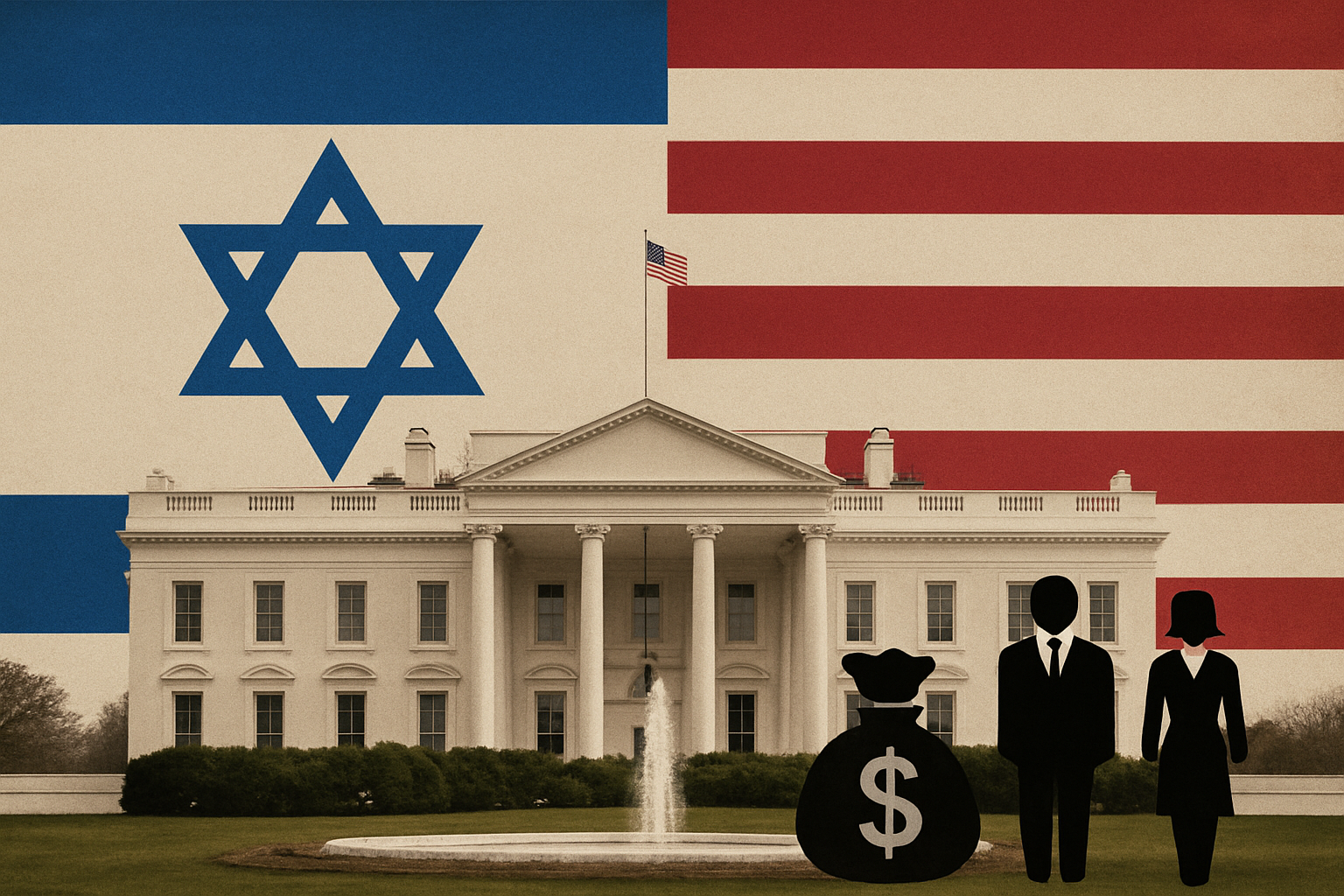The Washington Eye
As American political discourse over foreign influence intensifies, the American Israel Public Affairs Committee (AIPAC) continues to command attention for its unmatched fundraising, deep donor networks, and persistent alignment with Israeli government priorities. With more than $95 million deployed during the 2024 U.S. election cycle—including through its affiliated Super PAC, United Democracy Project—AIPAC played a pivotal role in shaping congressional races, most notably by targeting progressive Democrats critical of Israel’s conduct in Gaza. Yet despite AIPAC’s overwhelming impact and its donors’ strong connections to Israeli institutions, the organization is not classified as a foreign lobby under U.S. law. This legal distinction—and the contrasting approach of rival group J Street—underscores the complexities surrounding domestic advocacy on behalf of foreign interests.
AIPAC’s major contributors are not just powerful Americans with a shared ideological bent; many have extensive financial and institutional ties to Israel. WhatsApp co-founder Jan Koum, a major funder of AIPAC’s UDP, has roots in Israel and has donated millions to Israeli causes. Bernard Marcus, the billionaire co-founder of Home Depot, has long backed Israel-linked initiatives and charities. Haim Saban, although a Democrat and more centrist in his views, also donates heavily to Israeli cultural and political institutions. These donors’ funding, routed through American channels, effectively fuels a domestic lobby that closely mirrors the policy preferences of the Israeli government.
In 2024, AIPAC’s spending helped unseat progressive incumbents including Jamaal Bowman in New York and Cori Bush in Missouri—two lawmakers who had supported a ceasefire in Gaza and criticized U.S. military aid to Israel. In Bowman’s race, UDP spent approximately $15 million to support challenger George Latimer, while in Bush’s district, millions were deployed to assist Wesley Bell. These interventions were accompanied by direct PAC donations and sustained messaging campaigns, largely avoiding explicit references to Gaza but benefiting from broader dissatisfaction with progressive voices in swing districts. The strategy was effective, albeit controversial, with critics noting that the overwhelming majority of AIPAC’s independent expenditures targeted Democrats, not Republicans, despite the organization’s stated bipartisan identity.
AIPAC’s legal status as a domestic lobby is rooted in the 1938 Foreign Agents Registration Act (FARA), which requires groups to register as foreign agents only if they are controlled, directed, or funded by foreign governments or political parties. AIPAC has long maintained that it represents American citizens who support a strong U.S.-Israel relationship—not the Israeli government itself. Its board, staff, and donors are overwhelmingly American. The organization receives no money from the Israeli state, nor does it operate under contractual instruction from any foreign authority. As a result, it has avoided classification under FARA, even in the wake of the 2006 Lawrence Franklin espionage case, in which AIPAC officials were implicated but never convicted. The Justice Department ultimately concluded there was no legal basis to label AIPAC a foreign agent.
Still, this legal clarity has not silenced political and ethical concerns. Progressive coalitions such as Justice Democrats and Jewish Voice for Peace argue that AIPAC’s activities—though technically domestic—reflect the interests of a foreign state to such an extent that registration under FARA should be considered. These calls have been amplified by Democratic lawmakers who have faced AIPAC-funded challengers. Representative Alexandria Ocasio-Cortez, among others, accused the group of distorting intra-party debates by pouring tens of millions of dollars into primary battles. AIPAC defends its actions as democratic advocacy, asserting that it supports candidates from both parties who stand with Israel.
In contrast, J Street offers a markedly different model of pro-Israel lobbying. Founded in 2008, J Street supports a two-state solution and frequently criticizes Israeli settlement expansion and hardline policies. Its political action committee, JStreetPAC, contributes almost exclusively to Democrats and has made support for diplomacy and human rights central to its platform. In 2024, J Street spent just under $7 million on campaigns—about one-tenth of AIPAC’s political outlay. The group does not engage in aggressive primary targeting and instead focuses on defending incumbents and candidates who promote peace-oriented U.S. policies toward Israel and Palestine.
J Street’s donor base also differs significantly. While AIPAC relies on a relatively small group of high-net-worth individuals—many with close connections to Israeli policy circles—J Street receives the bulk of its support from grassroots liberal Jews, academics, and policy professionals. Although philanthropist George Soros was an early backer, he has since distanced himself from the group, and its fundraising has remained modest compared to AIPAC’s juggernaut machine. J Street maintains no foreign offices, does not coordinate with Israeli government entities, and is often openly critical of the Netanyahu administration.
The ideological gulf between AIPAC and J Street reflects deeper fissures in the American Jewish community and in U.S. policy toward Israel. While AIPAC pushes a security-first, government-aligned agenda with bipartisan rhetoric, J Street advocates for reform, accountability, and diplomatic solutions. This divergence became especially clear in 2024 as J Street backed lawmakers like Summer Lee and Andy Levin—progressive Democrats who faced stiff opposition from AIPAC-aligned challengers.
Despite J Street’s smaller budget, its influence is growing among younger voters and Democrats who favor a more balanced approach to the Israeli-Palestinian conflict. However, the gap in resources remains stark. AIPAC’s strategic deployment of funds—especially through Super PACs that are unrestricted by traditional campaign finance rules—gives it unparalleled reach. Its affiliated American Israel Education Foundation also sponsors more congressional trips abroad than any other organization, often with itineraries coordinated alongside Israeli officials. These exchanges reinforce a narrative of unwavering U.S.-Israel solidarity, further insulating AIPAC’s position in Washington.
As foreign policy continues to intersect with domestic politics, and as younger Americans express growing discomfort with unconditional military aid to Israel, the scrutiny of organizations like AIPAC will likely intensify. Critics argue that while the group may not meet the narrow legal definition of a foreign agent, its proximity to Israeli government interests—and its ability to reshape U.S. political outcomes—warrants greater transparency and accountability.
Yet for now, the legal firewall between domestic advocacy and foreign lobbying remains intact. AIPAC’s immense influence stems not from foreign funding or covert directives, but from a network of American citizens deeply invested—politically, financially, and ideologically—in the security and success of the Israeli state. Whether future legislation revisits the definitions enshrined in FARA remains uncertain. But as the 2024 cycle showed, the power to influence American politics in Israel’s favor doesn’t need a foreign passport—just a well-funded domestic address.













